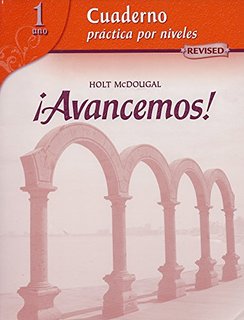
All Solutions
Page 254: Gramatica C
Both *saber* and *conocer* mean to know.
***Saber*** is used for expressing abilities or knowing information or facts.
***Conocer*** is used to talk about a person, a topic, or a location you know.
*(Ernesto: Do you know that…?)*
Sofía: Sí. Yo **sé** que… ¿Sabes por qué?
*(Sofia: Yes. I know that… Do you know why?)*
Ernesto: No, no **sé.**
*(Ernesto: No, I don’t.)*
We used the verb *saber* in the first part of the dialogue because they are talking about knowing information.
*(Ernesto: I don’t know him, who is he?)*
Sofía: El **sabe** jugar bien.
*(Sofia: He knows how to play good.)*
Ernesto: ¿Tú hermano **conoce** a los jugadores…?
*(Ernesto: Does your brother know the players…?)*
Sofía: Sí, el **conoce** a todos…
*(Sofia: Yes, he knows every…)*
In the second part of the dialogue, we used *conocer* in most sentences because they are talking about knowing people.
We used *saber* in only one sentence; the one where they talk about another person’s ability to do something. That sentence could also be translated as, “He can play good.”
1. Sabes
2. sé
3. sé
4. conozco
5. sabe
6. conoce
7. conoce
– Sí, conozco a un jugador de fútbol americano.
(Yes, I know an American football player.)
– Sí, sé las reglas del voleibol.
(Yes, I know the rules in volleyball.)
– Sí, mis amigos y yo sabemos patinar.
(Yes, my friends and I know how to roller-skate.)
– No, no conozco a ningún aficionado de béisbol.
(No, I don’t know any baseball fan.)
– No, no sé cuánto cuestan unos patines de línea nuevos.
(No, I don’t know how much new roller-skates cost.)
(I know that the best tennis player in the world is Novak Djokovic. He knows well other players and many tennis stadiums.)
In the first sentence, we are talking about knowing information, so we used *saber.*
In the second sentence, we are talking about Novak knowing people and locations, so we used *conocer.*

